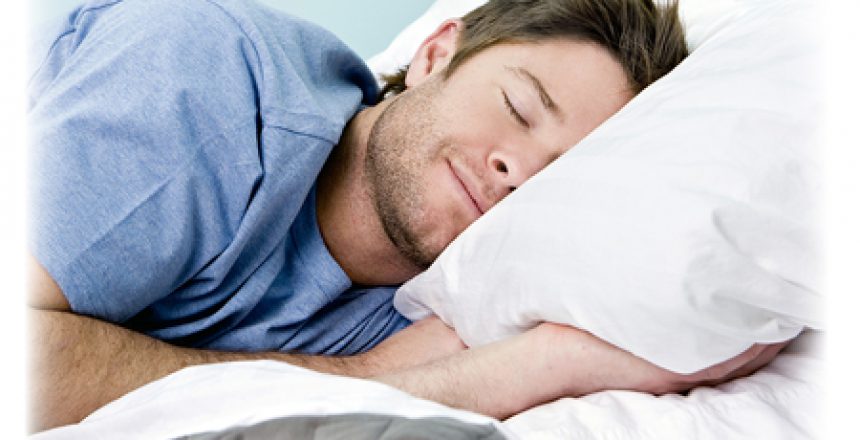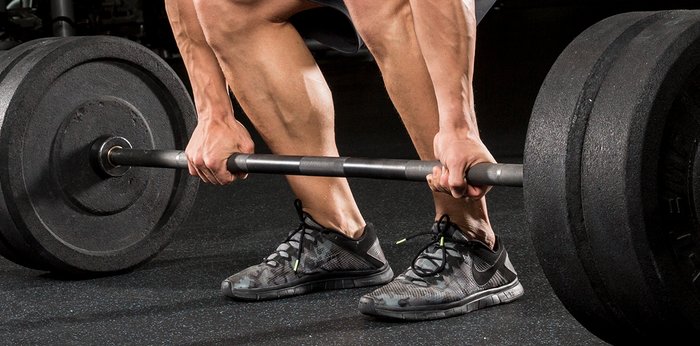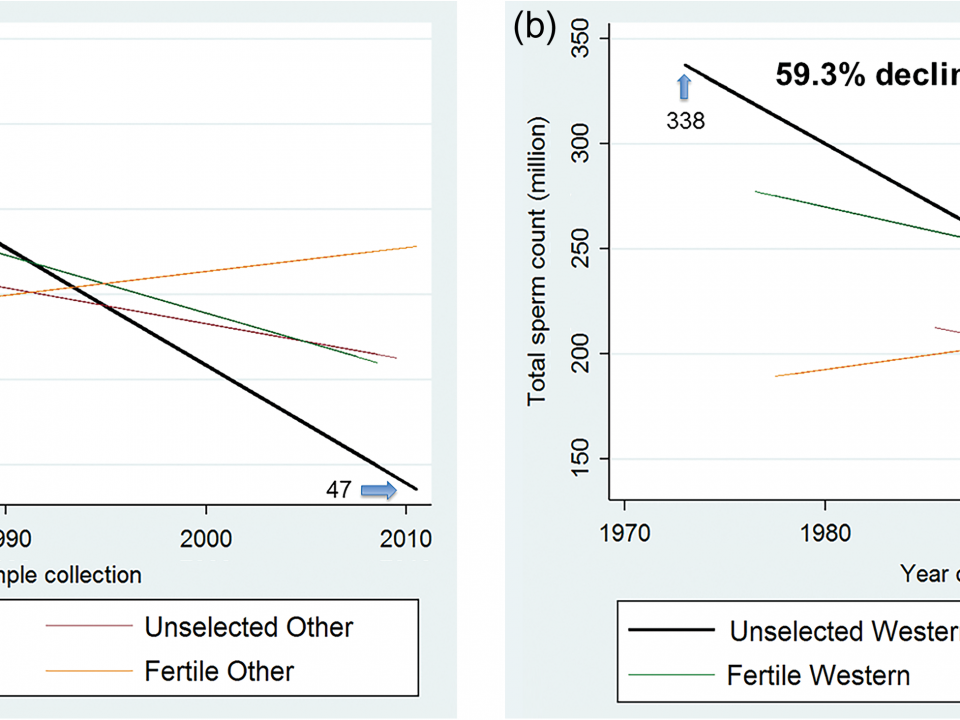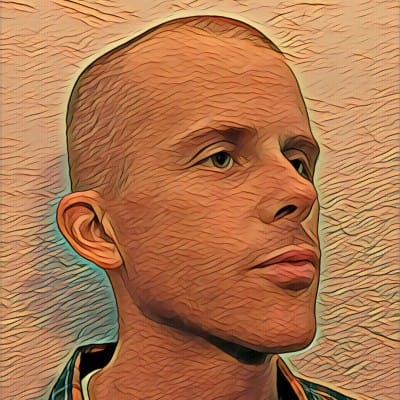Insufficient sleep and risk of obesity and illness
In recent years we’ve become much more aware of how sleep, both quality and quantity, can affect our health. Approximately 40% of Americans get less than 7 hours of sleep, which is less than the recommended amount. But as we’ll see here, excessive sleep may be bad for your health.
Insufficient sleep is associated with increased risks for obesity, diabetes, and cardiovascular disease. Keep in mind that this is an association, and causation hasn’t been proven.
Short sleep duration is associated with decreased levels of the satiety hormone leptin, as well as with increased body mass index, so this gives us some reason to think that a causal mechanism between sleep and obesity exists.
How important is the link between sleep and ill health?
Yet some sleep experts question whether the link between sleep and obesity is all that important. Sleep scientist James Horne points out that the link exists mainly with very short sleep duration, 5 hours or less, and that any obesity that may appear as a result takes many years to develop. While inadequate sleep does predispose to metabolic problems like glucose intolerance, this is mainly associated with sleep of less than 4 hours a night, which hardly anyone can sustain for more than a few days.
The real health problem caused by too little sleep, according to Horne, is increased risk of accidents. He believes that sleep debt is something of an urban myth, and that 7 to 7.5 hours is all the sleep most people need. More than that amount is excessive sleep.
Excessive sleep: the link between sleep duration and mortality
Reinforcing Horne’s statements about sleep is another noted sleep researcher, Dr. Daniel Kripke, a psychiatrist who has made his life work studying sleep. He and colleagues studied a very large cohort of 1.1 million people who were part of the Cancer Prevention Study of the American Cancer Society. They found that the lowest mortality rate was associated with 7 hours of sleep, but the real bombshell was as follows:
Participants who reported sleeping 8 hours or more experienced significantly increased mortality hazard, as did those who slept 6 hours or less. The increased risk exceeded 15% for those reporting more than 8.5 hours sleep or less than 3.5 or 4.5 hours.
Let that sink in: more than 8 hours of sleep was associated with significantly increased risk of death, and those who sleep more than 8.5 hours had a 15% greater risk of death, the same as if they slept only 4.5 hours or less per night. This sheds a new light on the amount of sleep we need, and casts some doubt on the idea of a widespread sleep deficit.
Furthermore, Kripke and colleagues importantly found that:
In contrast, reports of “insomnia” were not associated with excess mortality hazard.
Kripke has elsewhere stated that insomnia, for most people, is something that one should not worry about, that it is more an annoyance than anything.
Kripke and his colleagues have also found in several studies that even a brief use of sleeping pills, as little as a few times a year, is associated with greatly increased risk of mortality. Every class of sleeping pill that was examined showed increased risk, which leads one to speculate whether that risk was not due to the type of drug used, but rather to increased sleep alone.
Receiving hypnotic prescriptions was associated with greater than threefold increased hazards of death even when prescribed <18 pills/year. This association held in separate analyses for several commonly used hypnotics and for newer shorter-acting drugs. Control of selective prescription of hypnotics for patients in poor health did not explain the observed excess mortality.
More sleep = more death? If this were not the case, then we would expect different kinds of sleeping pills to have more or less risk, or some might not even have any risk. Yet the association holds even for sedative antihistamines (such as diphenhydramine, the most common over-the-counter sleep aid), so this leads one to think that the common denominator in the link between sleeping pills and death might be excessive sleep itself.
Long sleep duration is associated with depression
Just to add to the list of woes associated with too much sleep, long sleep duration, greater than 10 hours, is independently associated with persistence of depression and anxiety. And importantly, insomnia was not so associated, while sleep of less than 6 hours was. But the odds ratio for long sleep was much higher, 2.52, than that for short sleep, at 1.49. Does depression affect sleep, or does sleep cause depression?
One-half night of sleep deprivation can completely cure depression
A topic I’ve covered a fair amount on this blog is sleep deprivation for depression, which still strikes me as the most amazing thing every time I read about it. In a nutshell, depriving depressed people of sleep results in a literally instant cure for depression in up to 80% of patients. This result is no fluke and has been repeated in multiple studies over and over again. So fundamental a process this is that it was discovered in 1818 by Johann Christian August Heinroth, who wrote about it in the first ever textbook of psychiatry.
Medical researchers soon discovered that only one-half night of sleep deprivation gave virtually the same benefits, and was far more tolerable for patients. And deprivation in the latter half works better. Typically, the patient goes to bed at the usual hour and then is awakened, or wakes himself, after 4 hours of sleep, and then stays awake until the following night.
The main problem with this therapy is the possibility of relapse; most depressed patients become depressed again after sleeping, and since this can’t be avoided, it’s a problem. However, sleep phase advance preserved the sleep deprivation cure in over 60% of patients. The addition of light therapy makes the treatment even more effective.
Does the fact that sleep deprivation cures depression have larger significance? We saw above that long sleep duration is strongly associated with depression and anxiety. Could it be that sleeping more than necessary, that is excessive sleep, leads to depression, and that depriving ourselves of sleep cures it? Could it be that sleeping a bit too much each night, say one-half hour more, ultimately leads to depression? Here we tread beyond the scientific facts, but I don’t doubt it. It’s worth considering whether you sleep too much.
Feeling lethargic? Life got you down? Try sleeping less.
Be very skeptical of the mainstream warnings that we all need more sleep. Most of us don’t. Lots of evidence points to sleeping too much as a cause of illness, depression, and even death.
Insomnia is not a cause for alarm. Excessive sleep may be damaging to your health.
If you have trouble with mood and energy levels, try shaving off some of your sleep time. If you normally sleep 8 hours, for instance, try 7.5 or even 7 for a week and see if you don’t feel better. Remember that the lowest mortality rate is associated with 7 hours of sleep.
A good night’s sleep is important for health. But food is also, and just as with food, we can overdo sleep.
_________________________________________________________










12 Comments
Interesting. Regarding depression, even though I hadn’t been feeling depressed I thought I would try utilizing “morning faces” which I learned about from the late Seth Robert’s blog. I noticed a significant uptick in mood, and the “morning faces” routine seems to help with my sleep too (helps set the circadian rhythm). There’s a lot of information on it at his site. I’ve been utilizing Blogginheads for the “faces. Also I would also recommend “one-legged standing.” Again see Robert’s blog about that. It has helped with sleep as also it causes a particular feeling of well-being after doing it for a while.
For as long as I remember I would count the number of hours I slept the next morning. Always tried to get atleast 8 hours (the mainstream optimum sleep).
Funny thing was I would feel tired and slow when I wasn’t getting 8 hrs. It was my mental state having an effect on the physical body because I didn’t get “atleast” 8 hrs. Recently read an article that said the 8 hours is a myth (atleast for younger people).
Currently cruisin on 5-7 hours. This gives me much more time to do work.
How much sleep would you recommend for early 20s, workout 5-6 days, to be most effective and productive?
I think that’s an individual thing and it would be hard to give a recommendation. I mean, even mainstream science doesn’t know how much we should sleep. But if you feel alert and energetic on the amount of sleep you’re getting then it would seem to be enough. If you find yourself dozing off during the day, then no. Since I cut back my own sleep just a bit, to under 7.5 hours, I sleep much better and feel good during the day.
Makes sense.
I don’t feel sleepy during the day, probably cause I’m drinking coffee all day. The only slight problem is getting up (very tempting to go back to sleep).
I’ll test and tweak for few more weeks and we’ll see.
I’ve read about the possible “dangers” of getting too much sleep elsewhere before. I think we have to be careful about drawing definite conclusions here. All of this data showing increased mortality with over 8 hours of sleep is epidemiological, not controlled studies. So there could be all sorts of confounding factors here. On an intuitive level, who are the people likely to be getting lots of sleep most nights? Well, I would imagine the elderly, the unemployed, maybe those with certain chronic illnesses that require a lot of bed rest, and (as you touched on) the depressed. All of these cohorts are people who, it seems to me, are likely to be a bit less healthy than your average more-or-less-healthy, busy working person getting 7 hours of sleep a night. But we can’t say it’s because they’re getting more sleep that they’re less healthy.
I know I feel better when I get 8.5 hours of sleep than when I get 7 — more alert, more positive, just more alive. So I remain unconvinced here.
As a follow-up on this topic, I found this article, which directly talks about possible co-founders in the excessive sleep – longevity link: https://www.ncbi.nlm.nih.gov/pmc/articles/PMC2064433/
It also makes the point that we don’t really know if long sleep duration is a cause or merely an indicator for decreased longevity, but mentions 2 other possible confounding factors: sleep apnea (often people who sleep a long time have this), and alcohol use (heavy drinkers often “sleep” — aka pass out) for longer.
All of this makes me wonder if perhaps an “intermittent sleep fast” now and then might be a good idea. I know it can help some suffering from depression; I’m wondering about possible longevity benefits. Who knows?
Okay, one more: this abstract mentions several other factors that may explain the correlation (depression, anti-depressant use, unemployment, some others): https://www.ncbi.nlm.nih.gov/pubmed/16895254
It’s the J-curve (also sometimes called the U-curve).
https://cbtforinsomnia.com/pdfs/LongSleepIsAssociatedWithGreaterMortalityRiskThanShortSleep.pdf
https://www.ncbi.nlm.nih.gov/pmc/articles/PMC2276137/
Same thing applies to alcohol consumption, exercise/walking, and many other actions. Too little is not good. Too much is also not good. Goldilocks needs it to be juuuuuust right – well, at least within a rather generous range.
I recently (last saturday) had occasion to test the sleep-depression hypothesis when I took some LSD and stayed up all night, all the next day, and went to sleep at the normal time the next night.
Since then, I’ve slept much better, and feel like I’ve had an emotional refreshing. Not that I was clinically depressed before, but I certainly feel more connected to things that bring me joy. I could attribute this to tripping, but I usually try to get some sleep after a trip and have never experienced this benefit before.
Remembering the PD Mangan threads about sleep deprivation motivated me to stay awake after a certain point, not that this was hard!
What did I do with my extra time? Watched (mostly) Czechoslovakian films – On the Comet, Daisies, Conspirators of Pleasure (my least favourite) plus Nanook of the North while listening to both Prokofiev violin concertos, Borodin and Rimsky-Korsakov favourites, and some recent pop and 60’s electronica.
So I wonder now whether some of the LSD-psilocybin research is confounded by sleep deprivation – does time of day influence results?
Next time I feel the need, I’ll try the same amount of sleep deprivation without drugs.
Hey George, that’s certainly interesting. I remember when I was a teenager and LSD and other psychedelics were around. It seems the usual pattern was for people to take them and then stay up all night. As some of the stuff was undoubtedly impure and sold on the street, much of it was apparently cut with other drugs, including speed, which of course would make people stay awake all night.
But, George…. Czech films?!